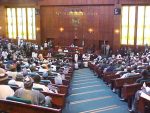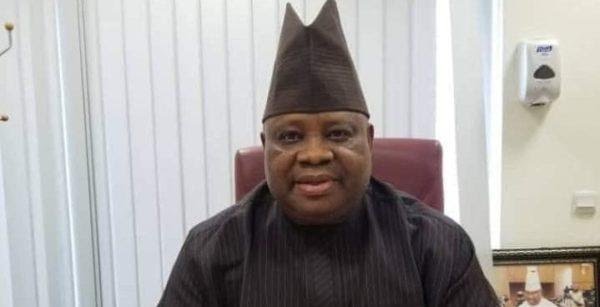(An Opinion by Dr Misbau Lateef, Lawyer And Law Lecturer, Obafemi Awolowo University, Ile-Ife)
The 223 pages Majority Judgement of Peter Obiora J. and Adegboye Gbolagunte J. was thorough and I commend the efforts and brilliance of their Lordships. Simply, the Majority judgement returned Adeleke of PDP as Osun Governor-elect on two or three essential grounds namely:
1) That the rerun of 27/09/2018 was unlawful or invalid as the RO had no power to cancel results in 7units across 3 L.Gs where the rerun took place. In other words, they believed the Petitioners’ pleadings that there was no ground for that rerun.
2) They deducted votes for both APC and PDP in other 23 – 50 Units across some L.Gs in the State on the ground that there were non-compliance with Electoral Act in those affected units and that the non-compliance affected the outcome. What non-compliance? Failure of INEC official to fill FORM EC8A and some some alleged alterations or forgery on the Form.
***What is Form EC8A? The INEC Form which documents accreditation and ballot accounting. There is a column in the Form where INEC is required to enter those figures.
3) However, the Majority judgement also concluded that even if the rerun of 27/09/2018 was not discounted or invalidated by them or was allowed to stay, Adeleke would still have won after those deductions in the other 23-50 units in other part of the State.
But was the Majority Judgement right to have cancelled the rerun of 27/09/2018 and deducted votes of both parties in other 23-50 polling unitis? That’s the fulcrum of the Minority judgement and the only two issues where the Minority judgement disagreed with the Majority judgement.
Now, In the 26 pages Minority Judgement, Muhammad Sirajo J. actually agreed with the two Supreme Court (SC) cases of Doma v. INEC (2012) & Ikpeazu v. Otti (2016)) which affirmed that RO has no power whatsoever to cancel elections of units and that only the PO has such powers under the law. So, there is no issue on whether the Minority judgement did agree that RO has no powers to cancel unit results. But did the RO actually cancel results in those 7 units across 3 L.Gs in Osun? No! Sirajo J. went further to distinguish these 2 SC precedents/cases from the present Osun case. In those two SC cases cited by you above, according to Sirajo J., the RO actually cancelled elections of units and the Petitioners also pleaded and tendered results of those units. In the present Osun case however, the Petitioners only pleaded that RO cancelled elections in those 7 units without showing/proving, according to Sirajo J., what the exact results were in those units and who cancelled them. He concluded that the Petitioner was unable to prove such results because there were actually no elections or declarations of results in those 7 units across 3 L.G were rerun was ordered by the RO. I don’t think its necessary to stress here that the RO has the power to order a rerun. That has been settled by the SC in James Faleke v. INEC (2016).
Let me emphasise for clarity, the Minority judgement clinically analysed the 7 units where rerun took place and found as follows:
1) In Unit 017, Ward 5, Osogbo L.G, there was no any election in the first place and the issue of RO cancelling them did not arise at all. At any rate, the Petitioner did not prove any results for that unit. So, the RO was right to order a rerun in that unit.
2) In the affected Units across Orolu, Ife South and Ife North, elections were disrupted and no returns whatsoever was made by the PO in those units. So, if elections were never concluded and no returns or announcement of results was made in those units and the Petitioner did not even prove that elections held there or were announced by PO and later cancelled by RO, how can anyone say the RO cancelled what never happened? The Minority judgement then concluded that ordering a rerun as the RO rightly did cannot amount to cancellation of results in those units unless results were in facts announced by PO and then cancelled by RO as alleged by the Petitioner. Sadly, the Petitioner did not discharge that burden of proof and it never shifted to INEC or Respondents. I need not stress that the first burden of proof rest with the Petitioner. See Adeyeye v. Oduoye (2010) amongst several others.
Now, another area of serious fault on the part of the Majority judgement are the votes they deducted in arrears (50 units – although Petitioner gave evidence in respect of only 23 or 27 units) where they agreed with the pleadings of the Petitioner (not evidence oh) that there were non-compliance. According to the Majority judgement, the singular fact that INEC failed to enter certain columns for accreditation and ballot accounting on FORM EC8A was a form of non-compliance. Mind you, all the Petitioner Witnesses (PWs) who came to court agreed that accreditation, elections, sorting, counting, announcements of results and issuance of duplicate pink forms to their own agents took place in those units, only that INEC did not fill Form EC8A. In fact, all the PWs also agreed with the results and affirmed them as declared but only insisted that INEC ought to have filled those columns on Form EC8A.
Now, the Minority judgement also agreed that non-filling of the Form EC8A by INEC was non-compliance but proceeded to ask whether it was substantial enough to invalidate other processes noted above and acknowledged by the Petitioners through their PWs? He concluded that the Petitioner did not also establish how the non-compliance was substantial or affected their own results or that of the Respondents. He therefore held that since the non-compliance was not substantial and the Petitioner didn’t even prove that it was substantial and how it affected them, it was wrong to deduct votes the way the Majority judgement did in those 23 or 50 Units. In the exact words of Sirajo J.: “I am satisfied that there is non-compliance by way of ommission to record columns for accreditation and ballot accounting in 23 units out of 3,010 polling units in Osun State. What then is the degree of the non-compliance? Has it attained the degree of substantial non-compliance?” See page 20 of the Minority judgement. Well, he answered his own queries in the negative by relying on section 139 (1) of the E.A which provides that, non-compliance will not hold water if it appears to the Tribunal that it was insubstantial and that it didn’t affect the results of the election. In my view, how did failure to fill Form EC8A by INEC affect results of the elections even when it was the evidence of the PWs that accreditation, election, sorting, counting, announcements and issuance of duplicate pink copy of results sheets to agents took place in those units? I await the take of the appeal courts on this.
The Minority judgement then went further, in an alternative thought, that supposing the non-compliance was substantial and even proved, the Tribunal had no power to cancel but may only order a fresh rerun under section 42 (2) E.A. As you can see, his reference to section 42 (2) was just an alternative thought and not the plank of his judgement. If that section has truly been struck down by a FHC as now claimed in many quarters, the fulcrum of the judgement of the Minority would still stand. Why? He did not agree that mere failure to fill Form EC8A by INEC was a substantial non-compliance. He also held that the Petitioner didn’t even prove the non-compliance and hiw it affected the results.
Finally, the Minority judgement also concluded that even an order for a fresh rerun cannot be ordered by the Tribunal unless it was specifically prayed for by the Petitioner since, according to him, the Court is not a charity.
In my own personal analogy, this is how I treated that error of Majority in deducting votes merely because INEC did not fill certain columns or even altered certain columns of FORM EC8A, an act regarded by the Majority as non-compliance. According to me, pleadings of the Petitioner which swayed the Majority judgement to deduct votes for both APC and PDP in some 23-50 units is like someone contesting the legitimacy of the birth or birthday of a child simply because certain important columns in the birth register in the hospital were not filled by the hospital officials, although the official gave a duplicate copy of birth certificate to the parents which contained all details. So, if the doctor who took delivery, the matron who nursed the mother and baby, the mother of the child, the father and others present at birth are unanimous on the fact of birth and the date of birth, will failure of the hospital official to enter certain important columns – even if its date of birth – in the register of birth in the hospital amount to a substantial non-compliance with registration of birth such that it can defeat the above unanimous evidence of everyone concerning the birth and date of birth of the child? NO!!!!
Finally, I seriously think the Majority judgement was wrong on all fronts. They ought not to have deducted votes as the alleged non-compliance was not substantial and was not proved to be substantial by the Petitioner in line with s.139 (2) of the E.A noted above. They also ought not to have cancelled the rerun on the erroneous ground that the the RO cancelled elections in those 7 units across 3 L.Gs, when there was no such categorical prove before them. I mean, they (both Majority and Minority) agreed that Petitioner did not prove the results in those 7 units.
I cannot wait for the outcome of the impending appeals. Whichever way, it will definitely enrich our electoral Jurisprudence.”
(c) Misbau Alamu Lateef











